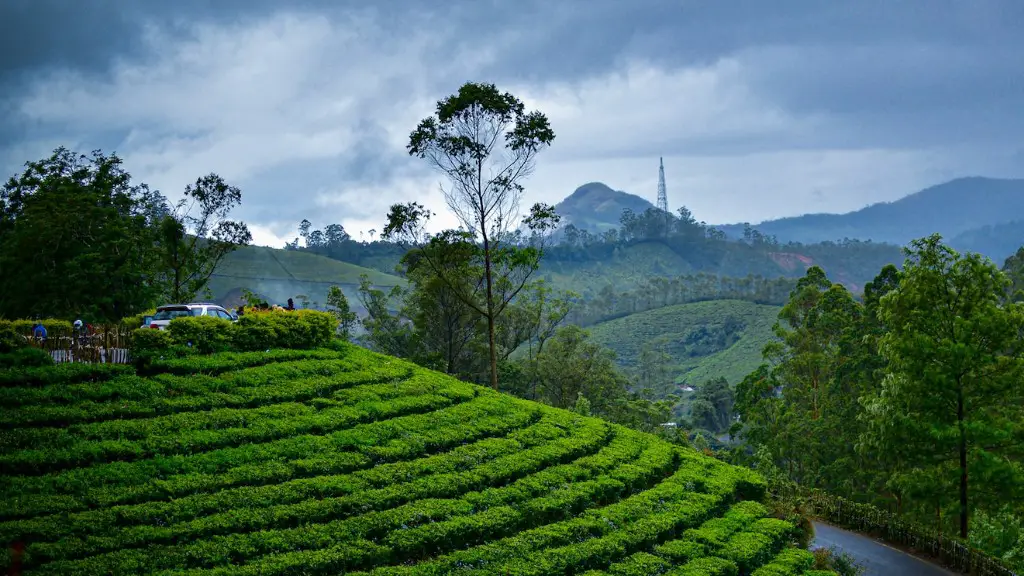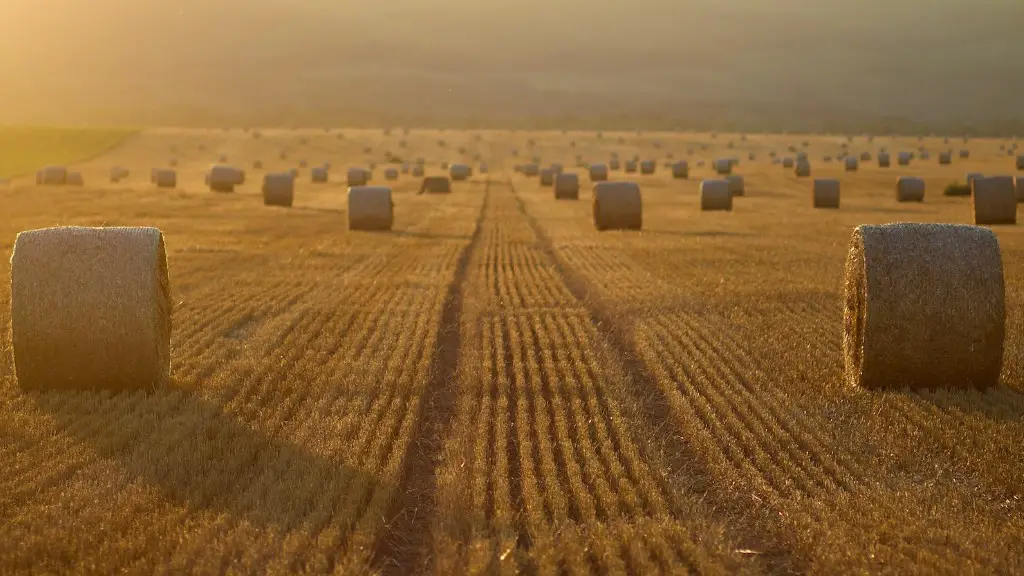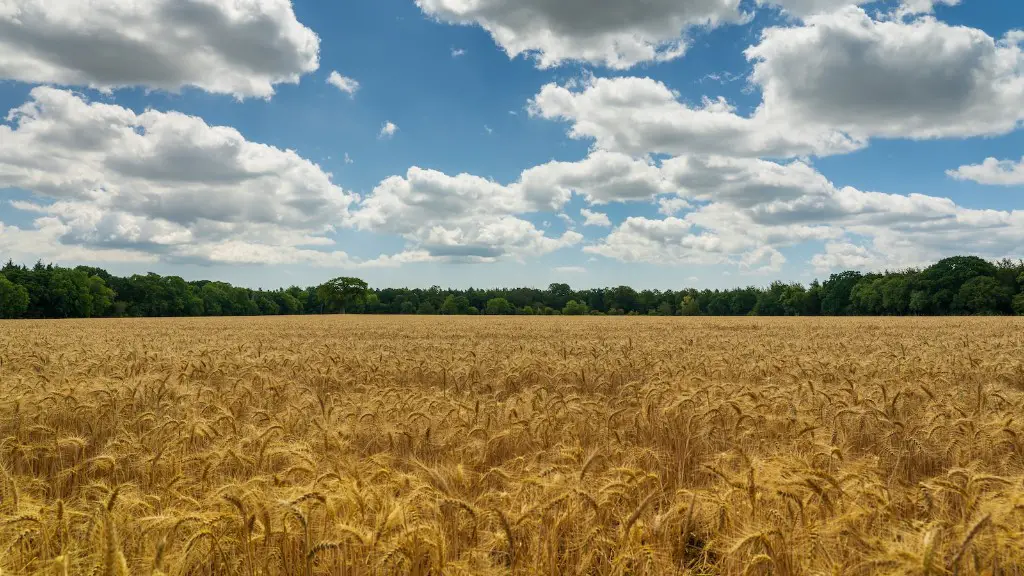Agriculture universities in India have become a popular choice for undergraduate and post graduate students as more and more people are drawn to the emerging sector of agriculture in the country. There are currently over 60 State Agriculture Universities across India, which are spread across different states and union territories, as well as several Central Agricultural Universities and numerous private institutions offering higher education degrees in agriculture and related subjects. Due to the large number of universities and colleges, it can be difficult to ascertain the exact number of agriculture universities in India. However, it is estimated that at present, there are around 65 universities providing degrees in agricultural science, and related fields of study.
These universities are mainly concentrated in the northern and western parts of India, with the highest concentration in Maharastra. Maharashtra itself has 45 agricultural universities, which provide a comprehensive range of courses in the state. Other states such as Karnataka, Uttar Pradesh, Gujarat, Andhra Pradesh, Tamil Nadu and Madhya Pradesh also have substantial numbers of agricultural universities.
In addition to the government universities, there are many private agricultural universities and colleges across India, that are accredited by the respective state governments and offer various degrees in the field. These private universities mostly offer a combination of research-oriented education and online studies, with certificates and diplomas as well as more advanced degree programs.
The agricultural universities in India are also known for their research and scientific advancements. For example, the Indian Council of Agricultural Research (ICAR), an autonomous organization under the Ministry of Agriculture and Farmer’s Welfare, is based in New Delhi and is responsible for conducting advanced research on various aspects of plant biology, animal husbandry, soil science and other related disciplines. The ICAR has established numerous universities, research centers and colleges, which offer a wide range of courses.
The benefits of studying agriculture in India are many. Not only are there a variety of degrees available, but the cost of living and tuition fees are also generally lower compared to other countries. Moreover, the agricultural universities in India also offer several scholarships and financial assistance options, making it easier for students to pursue their studies without having to worry about economic burden.
In conclusion, it can be said that the number of agriculture universities in India is increasing rapidly and is becoming a popular choice for those looking to study agriculture, animal husbandry, soil science and related fields.
Agricultural Science Programs in India
Agricultural science programs in India are designed to provide students with the knowledge and skills necessary to understand and address the various challenges faced by the agricultural and farming industry. These programs offer students a broad-based scientific education that prepares them for careers in a range of sectors such as agronomy, bio-chemistry, ecology, environmental science, horticulture, and plant pathology, amongst others.
These programs cover a range of scientific principles, theories and concepts related to the management of farmlands, crop production, animal husbandry, soil science, and other agricultural-related areas. Students gain an in-depth knowledge of the underlying processes and principles, as well as practical experience in terms of hands-on training, workshops and field trips.
In India, several renowned universities offer courses in agricultural science, with some of the most popular programs being offered by the Institute of Food Technology (IFT), Indian Agriculture Research Institute (IARI), Indian Institute of Technology (IITs), National Institute of Technology (NITs), University of Agricultural Sciences (UAS), Punjab Agricultural University (PAU) and Central Agricultural University (CAU).
Many private universities, colleges, monastic institutions and other autonomous institutions also offer agricultural science programs. Admissions to these programs is highly competitive and is based on a candidate’s performance in entrance tests. Most universities have a minimum score requirement to be eligible for admission and the process also includes personal interviews.
The duration of the agricultural science programs varies depending upon the specific programs and universities, and can range from two to four years. Upon successful completion, graduates are able to pursue careers as professionals in the fields of agronomy, crop production, animal husbandry, soil science and related areas. Moreover, these programs are also advantageous for students who wish to pursue doctoral studies in the agricultural sciences.
Research in Agriculture Universities
Agriculture universities in India are known for the research and scientific advancements in the field of agriculture, thanks to the dedicated team of researchers and academicians. Several state and central agricultural universities are actively engaged in conducting research to resolve the numerous issues that plague the farming industry. Moreover, these universities also serve as major collaborators in interdisciplinary research studies, involving scientists from multiple domains related to the agricultural sector.
These institutions are also aiding in the development of the rural economy of India. The research activities conducted by the universities focus on finding ways to improve the soil fertility, increase agricultural yields, improve the quality of agricultural products, reduce the cost of agricultural production, preserve natural resources and develop new practices and methods.
To promote research in the field of agriculture, the Indian government has taken several measures, such as setting up the ICAR and several agricultural universities, which are responsible for developing research and training programs. Similarly, several private universities have also established research centers to conduct research in various agricultural and horticultural sectors.
In addition to conducting research, the universities also serve an important role in educating and training the next generation of agricultural professionals. They provide the necessary support and guidance to students interested in the agricultural sciences, and ensure that students are equipped with the required knowledge and skillset to pursue successful careers in this field.
Agricultural research is also being supported by private institutions such as foundations, non-governmental organizations, and agro-industries. By partnering with private entities, universities and research institutions are able to access additional resources and funds that allow them to undertake wide-ranging research projects with far-reaching consequences.
Agricultural Technology in India
The innovation and implementation of advanced agricultural technology in India not only increases the overall output of the agricultural sector, but also helps to save time, energy, and resources. As a result, several Indian universities have established agricultural science and technology departments, to provide students with the latest knowledge and practical competencies in the field. In addition to classroom learning, these departments also foster field trips and workshops, which allow students to gain hands-on experience in current technologies used in the agriculture sector.
The advent of modern technology has revolutionized the farming and agricultural industry, by increasing production rates, enhancing quality and efficiency, and reducing wastage and pollution. For example, precision agriculture involves utilizing computer-based technologies and digital systems to boost the efficiency of operations such as resource and labor management, crop yield forecasting, and strategic decision-making. It has become increasingly popular among farmers due to its ability to optimize resources and maximize outputs.
Data obtained from Satellite Remote Sensors (SRS) is used to gather detailed information about crop health and field conditions. This helps farmers and agricultural scientists take corrective actions before it is too late, allowing them to prevent pest attacks and plan timely harvest. Similarly, UAV (drone) technology is used to optimize processes like crop spraying, land management, crop paths, and disease and stress management.
Other technological advancements such as blockchain, internet of things (IoT), advanced analytics, artificial intelligence (AI) and virtual/augmented reality (VR/AR) technology have also been implemented in the agricultural sector, allowing farmers to increase their productivity and enhance the quality of their produce.
Tools Used in Modern Agriculture
The introduction of modern agricultural tools and techniques such as tractors, harvesters, drip and sprinkler irrigation systems, and chemical fertilizers has revolutionized farming and increased the productivity of the agricultural sector. This has helped to contribute significantly to the overall economic growth of the country.
Tractors are one of the most popular farm tools used in India, as they are used to perform the majority of tasks related to crop production, harvesting and transportation. Harvesters, meanwhile, are used to speed up the harvesting process, allowing crops to be processed faster and more efficiently. In addition, modern irrigation techniques such as drip and sprinkler irrigation are also used to optimize the crop yield by optimizing the water resources.
Chemical fertilizers are used to replenish the soil, improve crop quality and increase yields. The application of chemically synthesized fertilizers helps to ensure an abundance of nutrients in the soil, contributing to higher output from cultivation. Similarly, herbicides and insecticides are also used in order to protect the yield from pests and regulate weed growth.
Modern agricultural tools and techniques have greatly contributed to the development of the Indian agricultural sector, resulting in increased yields and higher quality produce. Furthermore, the consistent use of these tools and techniques helps to keep the environment as safe and healthy as possible.
Benefits of Studying Agriculture in India
In addition to the numerous advantages that come with studying agriculture in India, there are also various benefits associated with pursuing a career in this field. For example, professionals with a degree in agricultural sciences have access to a wide range of career opportunities, with options to work in both private and government organizations in the agricultural sector.
The agricultural sector in India is rapidly growing, and is projected to reach a market value of over 800 million dollars by the end of 2020. This provides students with numerous job opportunities, including roles as agricultural consultants, advisors and farm workers. Moreover, professionals in this field are highly respected and often receive a great deal of respect from the community, as they are often seen as pioneers in the Indian agriculture industry.
In addition to providing job opportunities, a degree in agriculture also provides students with a host of other benefits, such as access to the latest agricultural technologies, the ability to apply for international scholarships and fellowships, and the opportunity to engage in cutting-edge research initiatives. Finally, the field of agriculture also provides students with the opportunity to acquire a sense of purpose, as they become a part of a larger cause that works towards providing food security and overall sustainable development.





